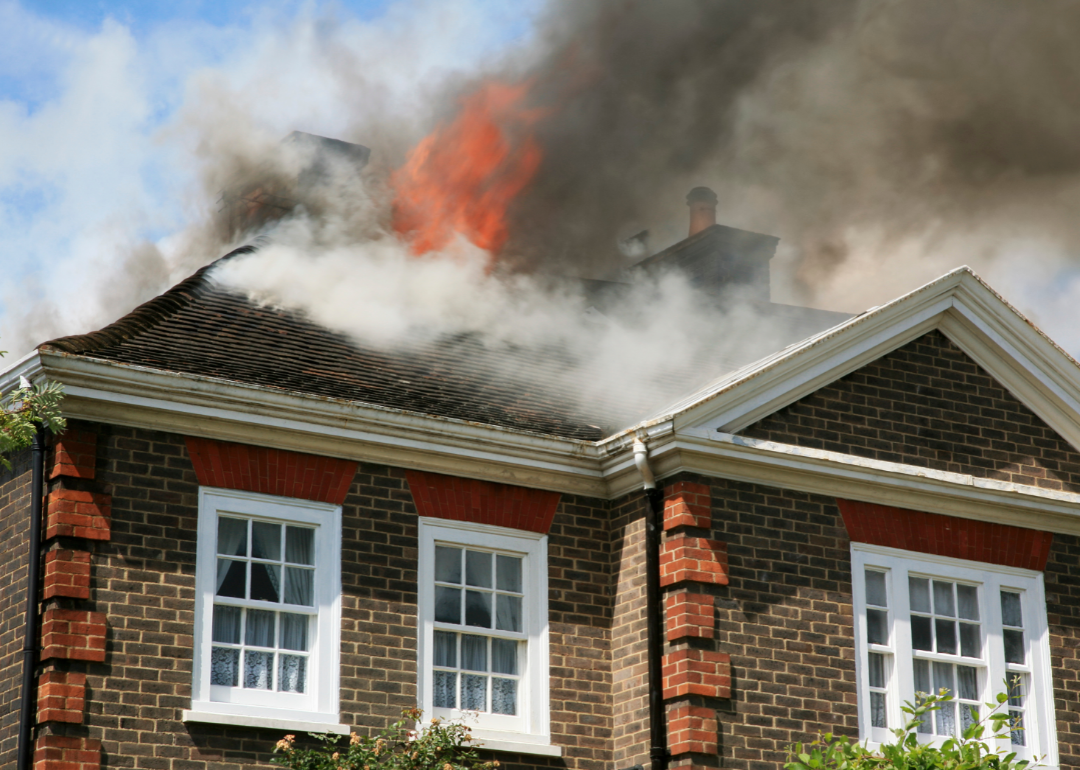
What to do after a house fire
The sound of a smoke alarm can strike terror into even the bravest person's heart. Though it can give the warning you need to escape a disaster, it also heralds a potentially deadly situation. In 2020, fire departments in the United States responded to a fire every 23 seconds on average. Death in a fire occurs every two hours and 31 minutes. Even home fires that don't result in death can cause injuries and leave thousands of dollars of damage behind.
Though most people know the basic steps to take for fire preparedness, few probably realize how difficult it can be to recover from a house fire. Stacker researched official recommendations from the US Fire Administration, the Red Cross, and other experts to compile this list of 17 steps you should take after a fire. If a fire does start in your home, take care of yourself, your loved ones, and your pets first—you can worry about your property and belongings once everyone is safe and the fire is out. Read on for tips about filing an insurance claim, cleaning up damaged property, and rebuilding after a fire.

Call 911
As you smell smoke, hear your smoke alarm, or see flames, evacuate the building and call 911. A quick response from the fire department can potentially save your home or your life.
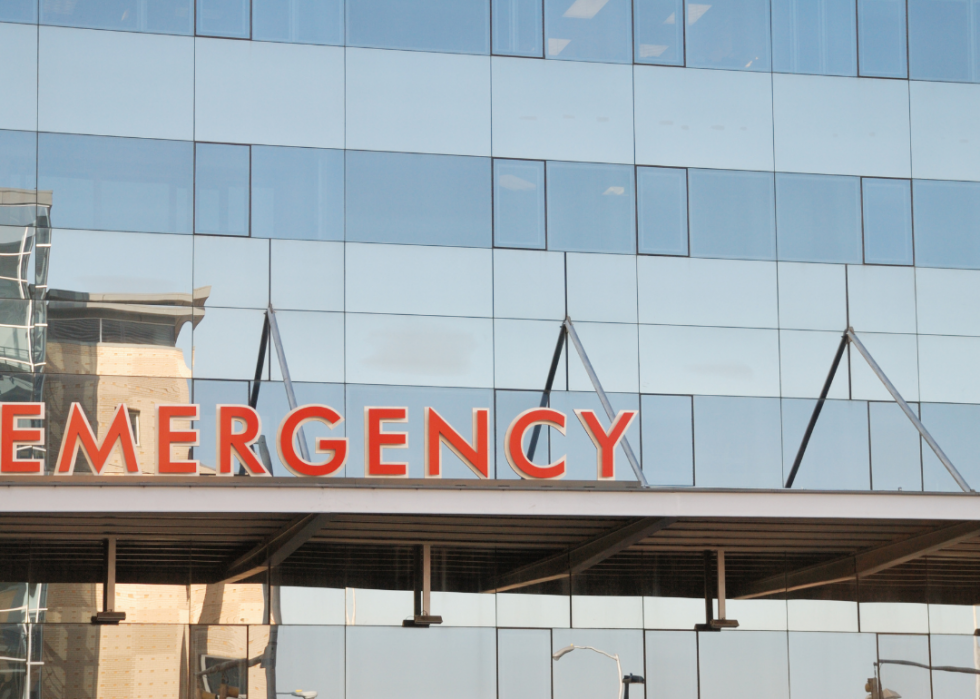
Seek medical help immediately if anyone was injured
If you or a loved one has been burned, cool and cover burns with a cold wet compress or clean cloth as soon as possible. Take anyone who is hurt to the hospital immediately to prevent further injury. That includes your pets or livestock: If they were burned or injured in the fire, they need veterinary treatment ASAP.

Let family and friends know you’re OK
Call your family and friends as soon as you can to let them know what happened and that you’re safe. You don’t want them to worry unnecessarily.
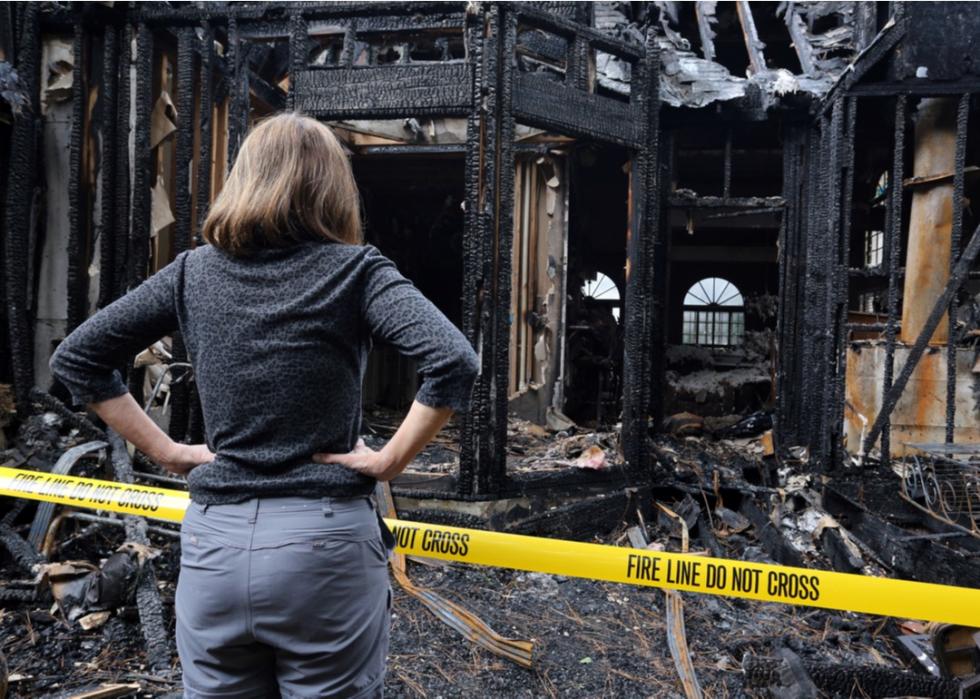
Stay out of your damaged home
Just because the flames have been extinguished doesn’t mean it’s safe to re-enter your home. Wait until local authorities give you the OK to go back inside and check out the damage. If the structural integrity has been weakened by the fire, you could be putting yourself back in harm’s way.

Secure the site
If your home is damaged enough that you need to live somewhere else for a while, you'll want to lock it up before you leave. Bad weather, vandals, and thieves can cause further damage to your property. Remove all remaining valuables from the property, cover any openings created by the fire, and lock all the doors before you leave. Talk with trusted neighbors to let them know that the home will be sitting empty until it can be repaired.
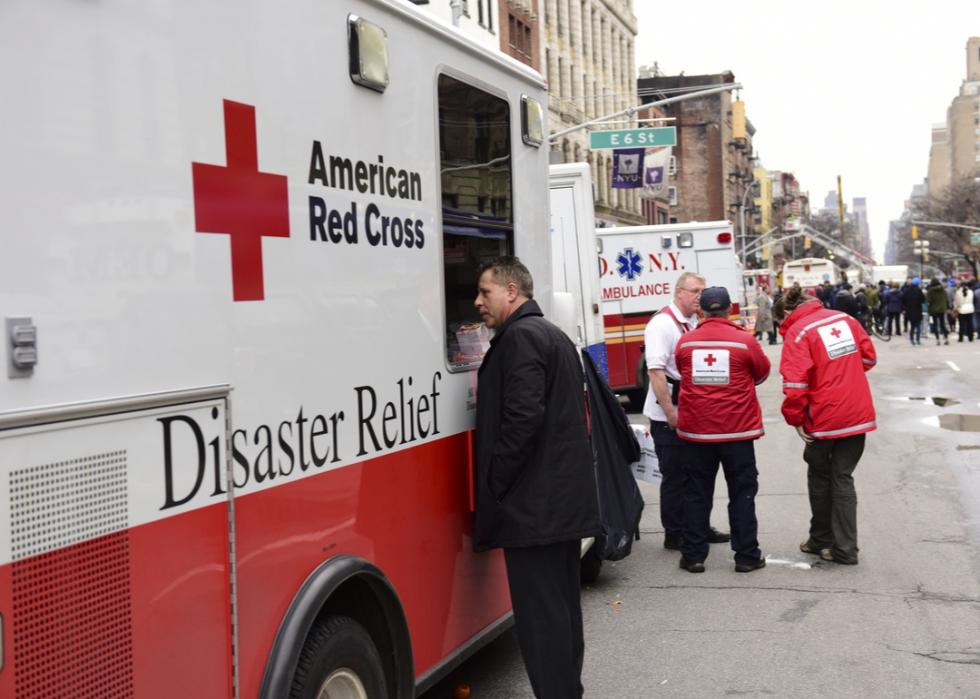
Get help from local disaster relief services
It might be helpful to get in touch with local disaster relief groups like the American Red Cross and Salvation Army. These charity organizations can help you find somewhere to stay, procure emergency supplies, get a hot meal, and deal with the emotional trauma of a disaster.

Call your landlord
If you rent your home, let your landlord know about the fire and any damage.
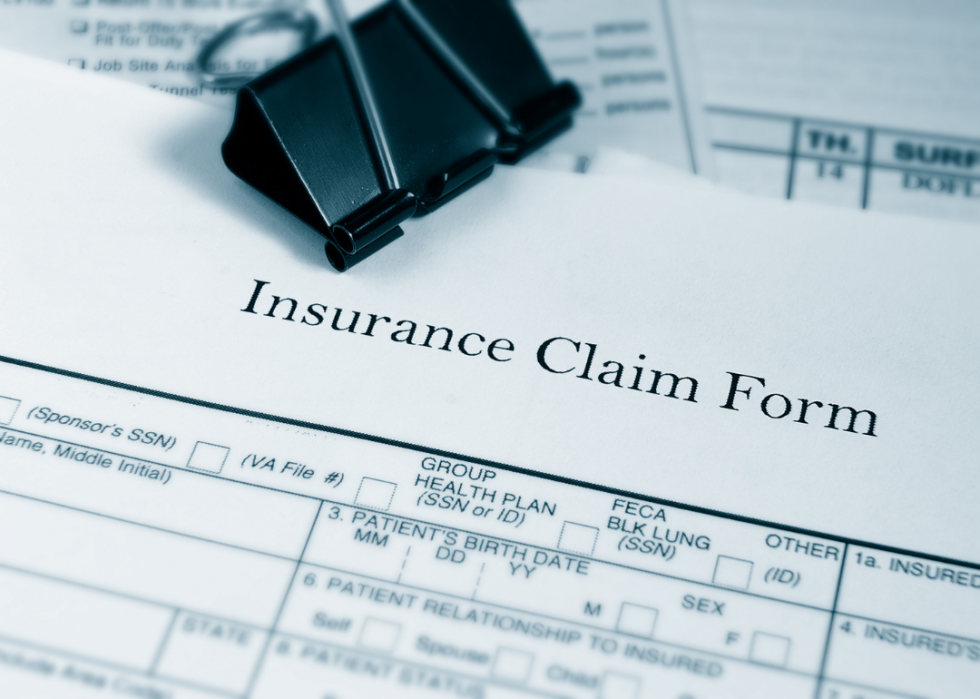
Contact your insurance company
You’ll want to get in touch with your insurance company right away to find out what you need to do to file a claim ASAP. They might have you make a list of everything that was damaged in the fire or take photos of the damage to your property. You can also ask for an advance against your claim to help pay for supplies you need right away.
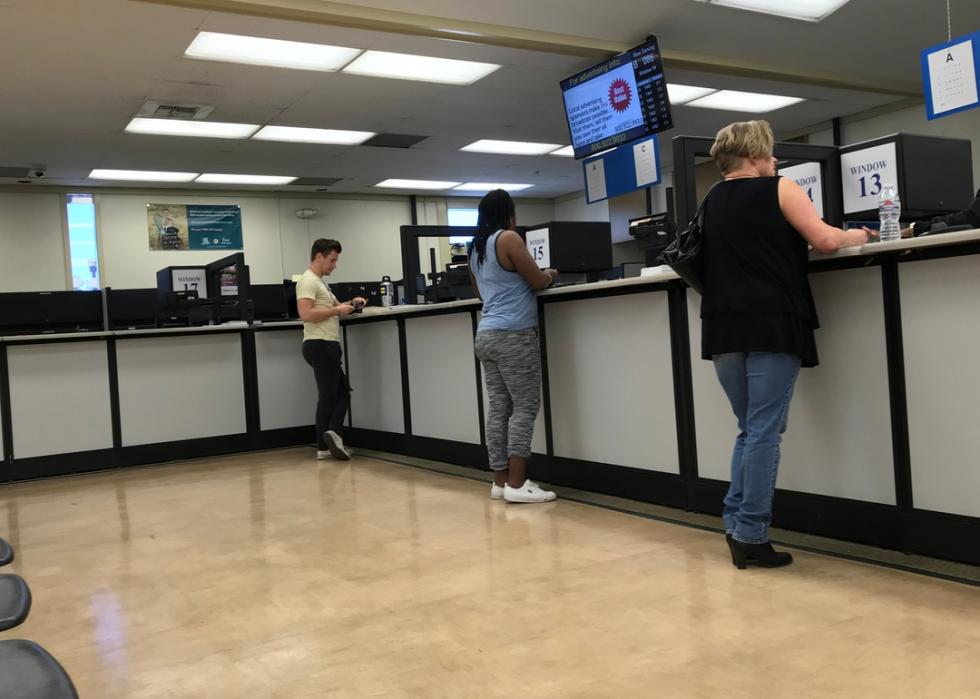
Replace important documents lost in the fire
When you hear your smoke alarm beeping, you don’t want to waste any time grabbing your belongings: Just get out of the building as quickly as possible. That means that many important documents might be damaged in a fire. Contact the appropriate agencies and companies to replace your driver’s license, car registration, insurance policies, passports, birth certificate, Social Security card, credit cards, titles to deeds, medical records, income tax papers, and any other important documents that were lost in the fire.
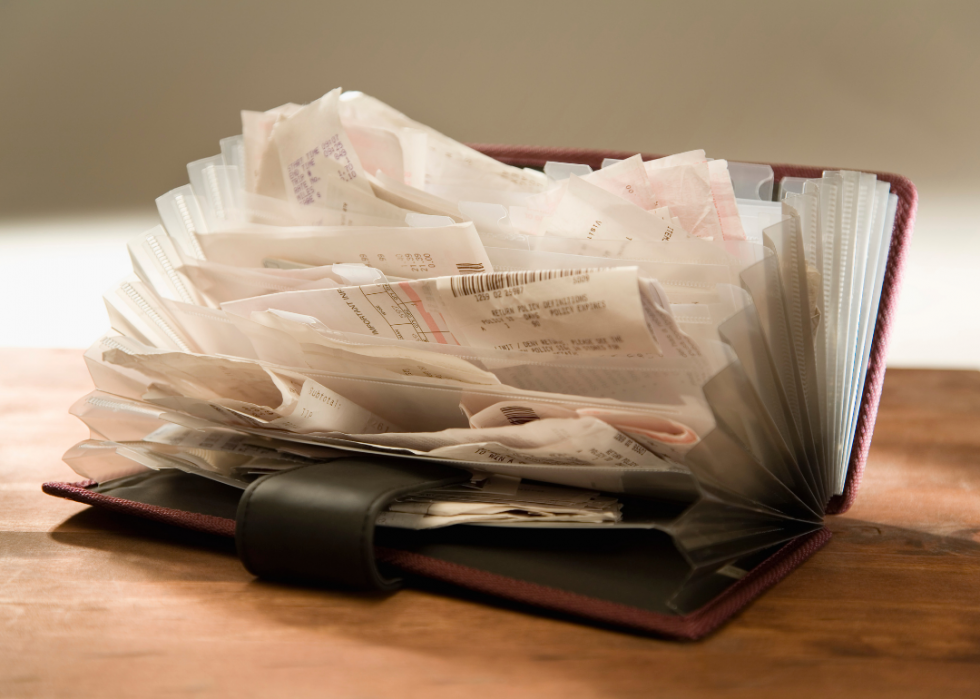
Save your receipts for any spending related to the fire
If you have to pay out of pocket for lodging, supplies, and other necessities, save your receipts: These costs may be covered by your insurance company. You might also need them to write off the losses on your taxes.
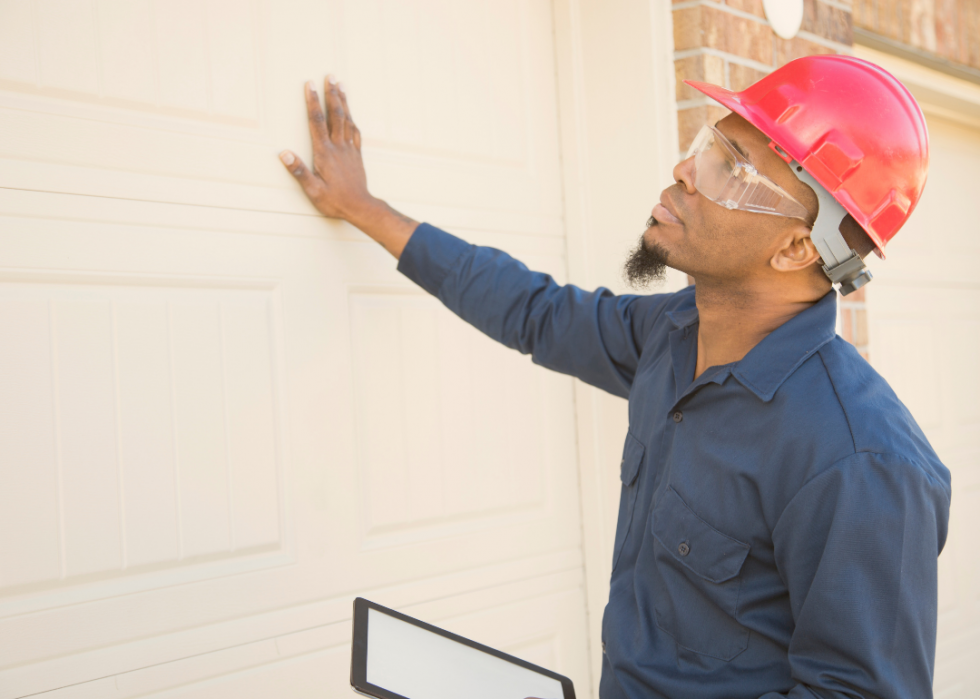
Check for structural damage
Before you go inside your home after a fire, inspect the exterior for signs of structural damage. Keep an eye out for loose power lines, cracks in the foundation, broken walls, missing support beams, and other damage. It’s best to ask a contractor or building inspector to formally inspect your home before you re-enter it after a fire.

Check your utilities
Next, inspect your utilities to make sure they still work. If you smell gas, leave the property immediately and call the fire department. If you see sparks, spot broken or fraying wires, or smell hot insulation, turn the electricity off at the circuit breaker. Refrain from using the sinks, showers, or toilets if you suspect your sewer or water lines may be broken. Call in electricians, plumbers, and contractors to help repair any broken lines or pipes.

Replace your drywall
Any drywall or insulation that appears sagging or wet will need to be replaced—water not only damages its structural integrity but also opens you up to the risk of mold or mildew growth. Hire a professional to replace any drywall or insulation that was soaked by fire hoses.
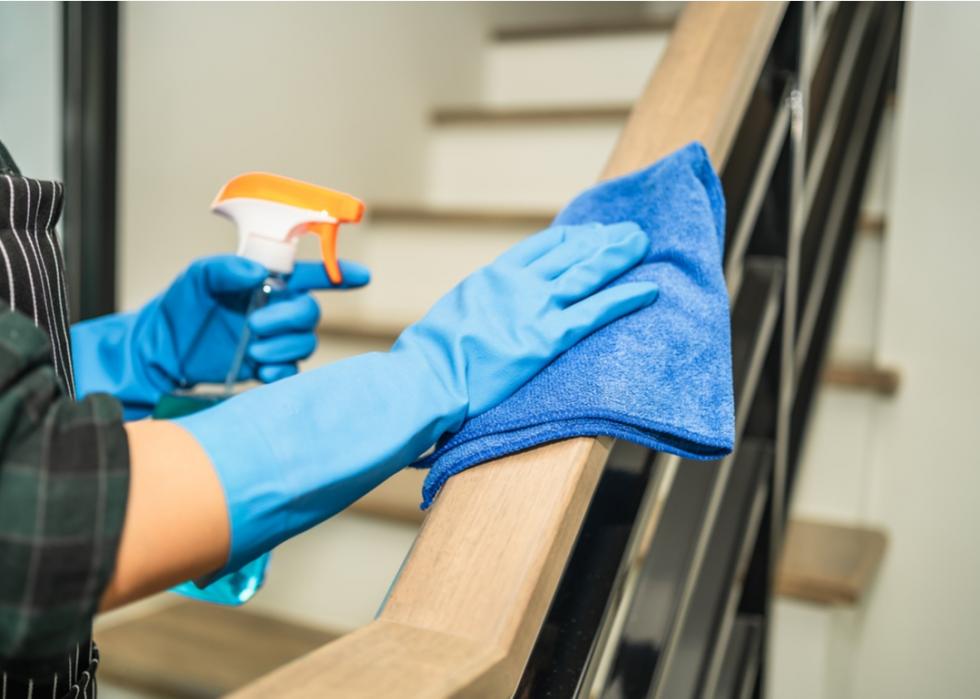
Clean out your home
Once you’ve dealt with the major damage, it’s time to start cleaning out your ruined property. Throw away any food, beverages, or medicine exposed to heat, smoke, or soot. Wipe down walls, floors, and furniture with a mild detergent or a solution of trisodium phosphate and water to remove smoke and soot. Wash all pots, pans, and other kitchen utensils thoroughly. Wipe down leather goods with a damp cloth, dry them, then use saddle soap to remove any lingering dirt or soot. Remember not to throw out anything until you’ve taken an inventory, though: You will most likely need this to file an insurance claim or replace things like medications.

Install new smoke alarms
Protect yourself from a future fire by installing new hard-wired, interconnected smoke alarms with battery backups on every floor as well as inside and outside each bedroom. By hard-wiring them together, you'll ensure that they will all sound if one is triggered.
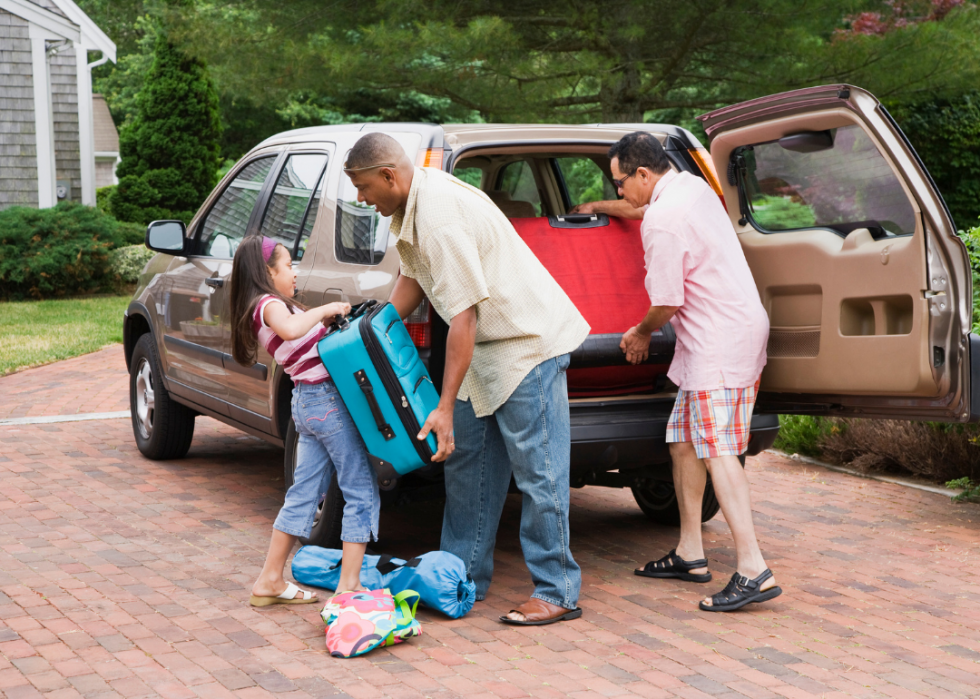
If you have to move, notify others of your new address
If you can’t return to your home within a few days of the fire, find somewhere else to stay and notify important parties of your new address. Your family, friends, insurance company, employer, and landlord should all know where to reach you in case of emergency.

Look out for emotional distress
No matter how busy you are, make time to take care of your emotional health after a disaster. Common reactions to a traumatic event include physical exhaustion, inability to make decisions, arguments with loved ones, changes in appetite, and loss of sleep. Take care of yourself emotionally and physically by eating healthy, getting enough rest, remaining patient with yourself, and reaching out for help when you need it. The Red Cross Disaster Distress Hotline is staffed 24 hours a day if you need to talk to someone.



